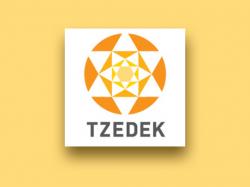Tough New Ethics Seal Set To Be Tested In Kosher Marketplace
January 4, 2011 | 1 min to read

After more than a year of fine-tuning, the criteria for earning a Magen Tzedek, the “seal of justice” to be awarded to kosher food producers that meet a detailed set of ethical standards, are about to be tested by American food companies. The seal would be added to products that already merit a hekhsher, or symbol certifying that a food item is kosher, to show that the product not only meets Jewish dietary laws, but comports with Jewish moral values, as well.
Beginning in January, several producers of kosher food will attempt to follow guidelines for everyday business conduct in five principal categories: labor, animal welfare, consumer issues, corporate integrity and environmental impact. The draft standards for these guidelines fill 150 PowerPoint pages. The companies’ efforts will be audited by Social Accountability Accreditation Services — an experienced social responsibility auditor based in New York City — with results to be announced in March.
Testing the standards represents the closest step yet to demonstrating “that Jewish ethical concerns that are based on who we are as a people are just as certifiable as Jewish ritual concerns,” Rabbi Morris Allen, a Minnesota pulpit rabbi, told the Forward. Allen is the project director of the Conservative-backed Hekhsher Tzedek Commission, which was formed in early 2007 after revelations of poor labor conditions — on top of previous exposés of brutal animal treatment — at the Agriprocessors kosher meat plant in Postville, Iowa, shocked some Jews into activism around the practice of kashrut.
To read the rest of this story please go to: The Forward
